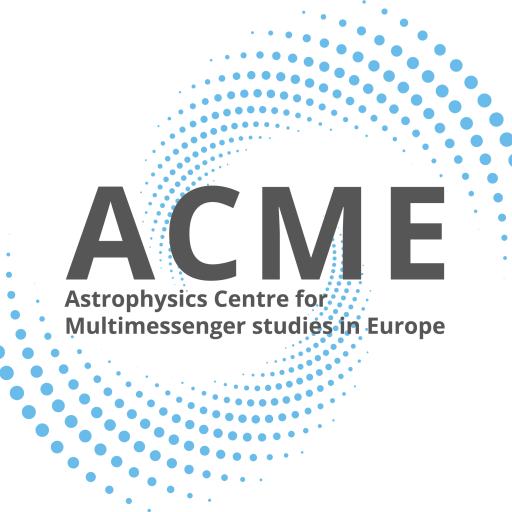The “Laboratoire des 2 Infinis – Toulouse” (L2IT) is a joint research unit of CNRS, via the Institut National de Physique Nucléaire et de Physique des Particules (IN2P3), and the Université Toulouse III – Paul Sabatier. Researchers and engineers at L2IT are studying the two infinities – the infinitely small and the infinitely large – and the relationships between the phenomena that govern each of them. In particular, the laboratory focuses its research activities on particle physics, gravitational waves and nuclear physics, and supports them with a dedicated team of experts in scientific computing and data. The laboratory is associated with major international collaborations e.g. at CERN in Geneva, the gravitational wave detector Virgo at EGO, the space gravitational wave detector LISA, and the GANIL FAZIA experiment in Caen.
Main contact for TNA call: Nicola Tamanini
Available expertise
The gravitational wave group at the L2IT conducts research on both theoretical and experimental aspects of GW science, with a distinct focus at exploiting new ideas connecting theory with observations through data analysis and numerical simulations. The group is part of the LISA Consortium, of the Virgo collaboration and of the Einstein Telescope (ET) Consortium.
The gravitational wave group at the L2IT offers a wide range of expertises in the context of gravitational wave astronomy:
- Gravitational wave data analysis (detection, parameter estimation, systematic bias estimation);
- Gravitational wave inference (on cosmological parameters, on astrophysical and environmental effects, on deviations from general relativity);
- Gravitational wave theory (foundations of general relativity, source and waveform modelling, gravitational wave propagation, theories beyond general relativity, characterization of source environmental effects);
- Gravitational wave cosmology (inference on cosmological parameters, interplay with electromagnetic observations, theory, standard siren methodologies);
- Galaxy catalogues for joint analyses with gravitational waves (construction of the catalogues, accessibility, optimisation, calculation of relevant properties, interface with gravitational wave cosmological pipelines);
- Gravitational wave open data (storage, accessibility, documentation, tutorials and training).
The group is an active participant in several research projects for both ground-based (Virgo and ET) and space-based (LISA) detectors. It has a long standing experience and maintained many roles of responsibility in different gravitational wave large international collaborations.
Furthermore some members of the L2IT gravitational wave group have a wide experience supporting early-career scientists in gravitational wave astronomy. In particular they participated in the development of different early-career scientists support groups associated with large international collaborations (LECS, VECS), as well as to the creation of the Gravitational Wave Early Career Scientists (GWECS) association.
Available tools
The L2IT contributes to the development and the maintenance of different scientific digital products connected to gravitational wave observations. Members of the L2IT are in particular actively contributing to the GLADE galaxy catalogues, the lisabeta data analysis code for LISA and the Gravitational Wave Open Science Center (GWOSC).
Since their first release in 2017, the GLADE catalogues have been among the largest publicly available all-sky galaxy catalogues. They are widely used for the follow-up of gravitational wave
transients, electromagnetic and neutrino signals, as well as for cosmological inference with gravitational waves. The GLADE galaxy catalogues represent thus a useful tool for multiple applications in several topics within the field of multi-messenger astronomy. The L2IT offers training on how to access, manipulate and use the GLADE catalogues, especially in gravitational wave analyses.
The Gravitational Wave Open Science Center (GWOSC) provides public access to gravitational wave data products. The collaborations running LIGO, Virgo, GEO600, and KAGRA have all agreed to use GWOSC services as the primary access points for public data products. Learning to access, manipulate and exploit the data products offered by GWOCS, constitute an essential skill for scientists interested in using gravitational wave data. In this context the Open Data Workshop, a series of workshops organised by GWOSC, includes lectures by data analysis experts, hands-on experience with software tutorials, and a data challenge designed to test newly acquired skills in gravitational wave data analysis. The workshop is held in person and online. Also institutions are encouraged to organise study hubs so online participants can interact with local experts.
lisabeta is a software suite to simulate the analysis of LISA data. It provides tools to generate LISA signals ranging from Massive Black Hole Binaries (MBHBs) to Stellar-mass Black Hole Binaries (SBHBs) and Galactic Binaries (GBs), tools to compute the Time-Delay Interferometry channels incorporating the instrumental response, and tools to perform a Fisher or Bayesian inference for the parameters of the gravitational wave sources. These tools are designed for a good computational performance and can be used to explore the future capabilities of LISA or as building blocks in a global fit analysis. lisabeta has been used in successful submissions to the past LISA Data Challenges LDC1 and LDC2a.
Involved scientists





